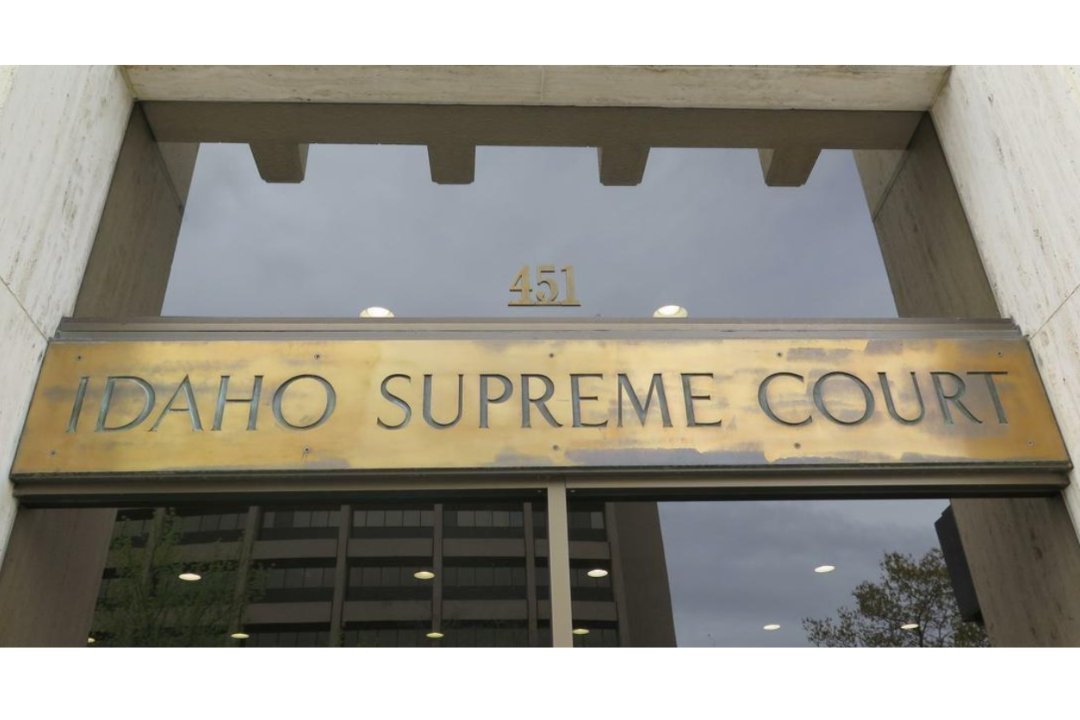Idaho Supreme Court: It’s Unconstitutional to Issue Arrest Warrants for Unpaid Monetary Sanctions When Defendants Can’t Afford to Pay
Precedent-Setting Decision Could End Widespread Practice of Arresting & Jailing People Who Can’t Afford Fines and Fees
JOINT RELEASE: American Civil Liberties Union • ACLU of Idaho • Anna Vancleave • Brian Highsmith • CATO Institute • Fines and Fees Justice Center • Institute for Justice • Judith Resnick • University of California-Berkeley School of Law Policy Advocacy Clinic
In a ruling with national implications, the Idaho Supreme Court held that the practice of issuing an arrest warrant for failure to pay fines and fees without first analyzing a defendant’s ability to pay violates the Fourteenth Amendment to the U.S. Constitution.
Beck v. Elmore was brought on behalf of Roxanna Beck, who spent seven days in jail because she could not afford to pay the monetary sanctions imposed after she was convicted of a minor misdemeanor offense.
“The Idaho Supreme Court confirmed what we all want to believe: that the Constitution is there to protect us, most especially the most vulnerable among us,” said Pete Wood, a public defender who served as Ms. Beck’s counsel on the case. “This is a significant victory for Ms. Beck and many other indigent Idahoans who have been jailed solely for their inability to pay court debt. We are beyond thrilled with the Court’s decision, and beyond thankful to the incredibly talented amici team for their herculean effort in reaching this result.”
An amicus brief was filed in the case by the American Civil Liberties Union, ACLU of Idaho, CATO Institute, Fines and Fees Justice Center, Institute for Justice, University of California-Berkeley School of Law Policy Advocacy Clinic, Judith Resnick, Anna Vancleave and Brian Highsmith. The brief was written pro bono by attorneys at Cravath, Swaine & Moore LLP with help from Idaho attorneys at Givens Pursley, LLP.
The amicus brief argued that the use of court-imposed monetary sanctions to fund government underscores the need for constitutional protection against government overreach. They also outlined how government reliance on monetary sanctions creates incentives for abuse, while creating a two-tiered system of justice where those who cannot pay become stuck in a cycle of poverty and punishment.
The U.S. Supreme Court has repeatedly and unequivocally held that the government may not incarcerate someone solely because they cannot afford to pay monetary sanctions — yet the practice remains widespread in many state and local jurisdictions.
With today’s decision, Idaho’s highest court ruled that the U.S. Supreme Court decision in Bearden v. Georgia applies with equal force to the issuance of arrest warrants based on contempt proceedings without an ability-to-pay determination.
According to Jeff Selbin, director of the Berkeley Law Policy Advocacy Clinic, “The Idaho Supreme Court is sending a clear message that courts should not be used to try to generate government revenue from poor people. Policymakers in Idaho and elsewhere should take heed and end these extractive, regressive, and racially discriminatory practices.”
Orion Danjuma, Senior Staff Attorney of the ACLU Racial Justice Program, said “the decision recognizes the common sense truth that the State cannot draw blood from a stone. The Constitution protects us from being punished for our lack of wealth and this decision helps ensure that the most vulnerable will not be pushed deeper into poverty by being jailed for inability to pay.”
“Warrants are a counterproductive and expensive method of coercing people to pay fines and fees, said Lisa Foster, co-director at the Fines and Fees Justice Center. “The harm to individuals and their families can be devastating. Just a few days in jail can cost a person their job, their housing, and even their children.”
Although Ms. Beck’s case involved a minor misdemeanor, the case could impact millions of people who owe fines and fees for misdemeanors, felonies and minor traffic infractions.
Twelve U.S. states still treat minor traffic violations as criminal offenses, rather than as civil infractions. This means that when people can’t afford to pay a ticket, a warrant is issued that often leads to arrest and jail. In numerous states, policymakers and advocates are working to pass legislative reforms to end this harmful practice. Earlier this month, Nevada Governor Steve Sisolak signed legislation that decriminalizes minor traffic violations — making them civil infractions and ending the widespread practice of issuing warrants for outstanding traffic debt.
Over the past 40 years, state and local governments have dramatically increased the number and amount of fines and fees imposed on people for everything from minor traffic and municipal code violations, to misdemeanors and felonies — and used draconian tactics to collect them. This regressive system of taxation is now entrenched in virtually every state, and in municipalities large and small across the country. But over the past few years, dozens of U.S. states and localities have enacted a wide range of fines and fees reforms.
Idaho advocates hope the Beck decision will kickstart other much needed reforms. Neighboring states, including Nevada, Utah, and Colorado have joined many others nationwide in reducing or eliminating juvenile fines and fees in the last several years.
“Juvenile fees are a regressive tax that disproportionately affect poor and rural kids while serving no punitive purpose, increasing recidivism, and costing the state more money than they bring in,” says Erica Marshall, the Executive Director of the Idaho Justice Project. “The Beck decision sets the stage for Idaho to reconsider its system of monetary sanctions and ensures that the criminal and juvenile legal systems are both fiscally sound and just.”
